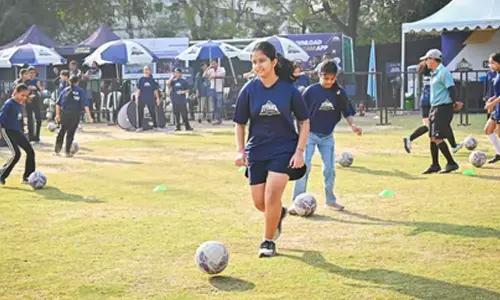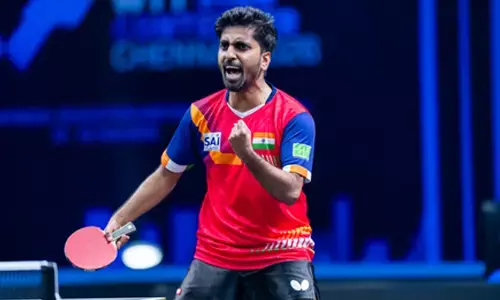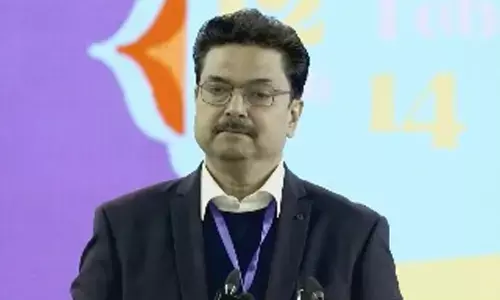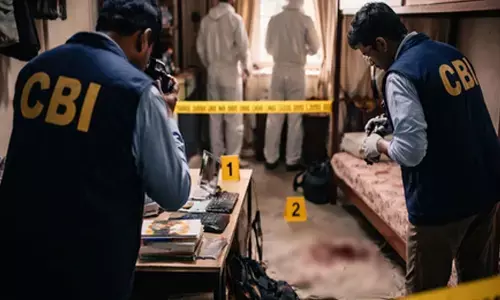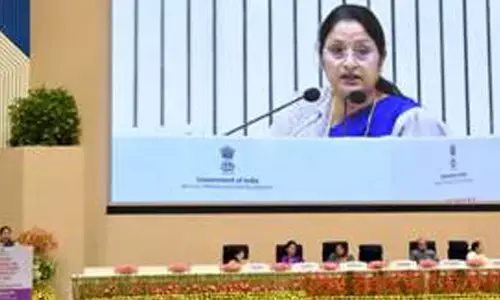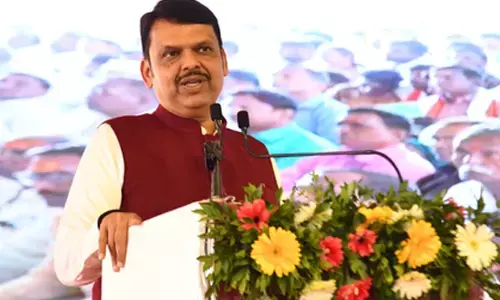Media cautioned against rising State control
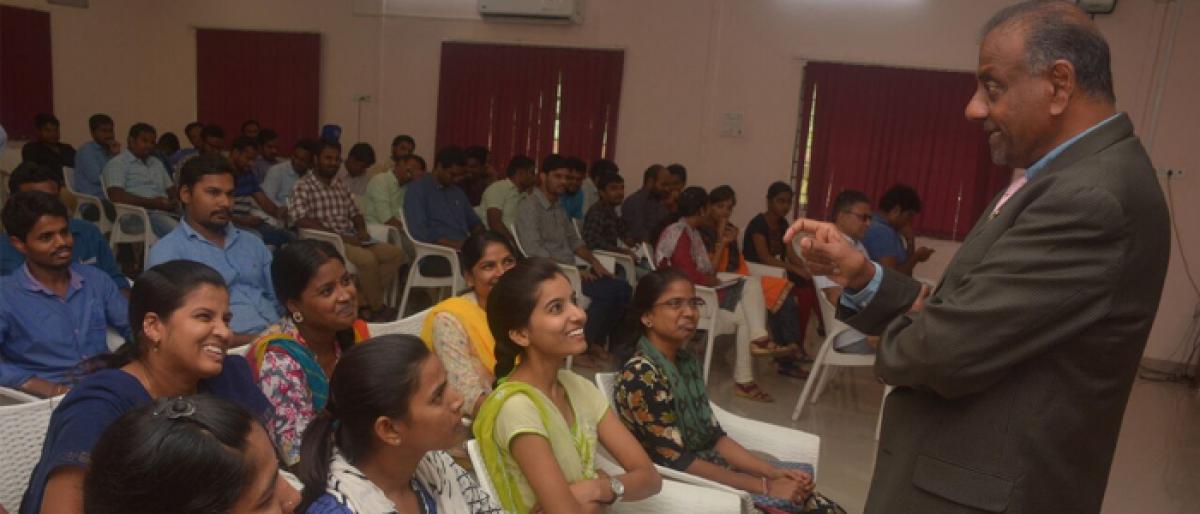
Professor of Communication and Media, Anantha S Babbili from the Texas A M UniversityCorpus Christi, USA said that Indian education system is capable of producing globally competitive professionalsDelivering a lecture on Representation and Misrepresentation in Journalism
Hyderabad: Professor of Communication and Media, Anantha S Babbili from the Texas A & M University-Corpus Christi, USA said that Indian education system is capable of producing globally competitive professionals. Delivering a lecture on "Representation and Misrepresentation in Journalism - Current Colleges to Democracy" organised by the Osmania University, Department of Journalism and Hyderabad Press Club here on Wednesday, he said that the exposure to a multi-cultural and multi-religious society like India gives a unique advantage. Because, it makes one to tolerate and to seek knowledge from other societies and cultures, he added. But, the scenario is diametrically opposite in countries like the USA.
While India has nearly 19,000 spoken languages on the other, the USA has been struggling with just two languages like Spanish and English. On the top of it all, open societies with democracy like India and USA have been technologically advancing in the globalization scenario. But, the key element of critical thinking to discern between fact and fiction in the information received is missing. This is taking a toll due to misrepresentation stories flashed through the WhatsApp and the like. Further, in a country like India, the non-English speaking rural masses are not able to figure out between the credible and non-credible information being circulated resulting in mobs lynching innocent people suspecting them as child lifters.
Terming it as the failure of the journalism, he said that journalism mediates between the reality and people. And, stressed the need for a critical rethinking about how to deal with such developments. The flooding of unverified information has become an important issue even in the USA where during the last presidential elections stories without a credible source continue to flow triggering the emotional instincts of the people. The main cause for the emergence of such scenario was due to the technology becoming handy to everyone resulting in even the untrained people becoming journalists to spread information with no accountability.
Cautioning against the demands for governmental controls over the regulating such information flow, Prof Babbili said self-regulation on the part of journalism and media is more appropriate than inviting the State control. However, he stressed the need to think about alternative models to resolve the challenges posed by the misrepresentation in the flow of information which has turned a challenge to the democracies.
That apart, under-representation of people from different communities in the media is another issue which needs to be given a serious thought. Head, Department of Journalism and Mass Communication, OU Dr K Stevenson, senior faculty members were present. Later, Prof Babbili interacted with students on various issues on journalist and its practice in the United States.


